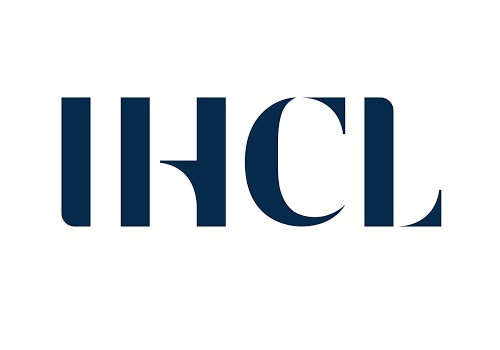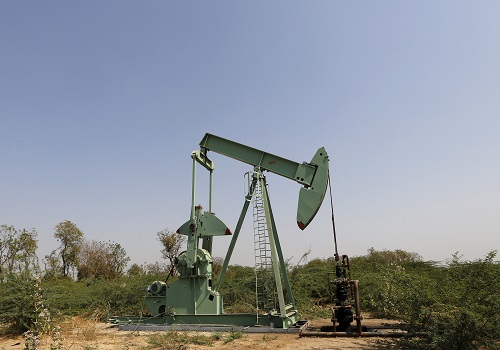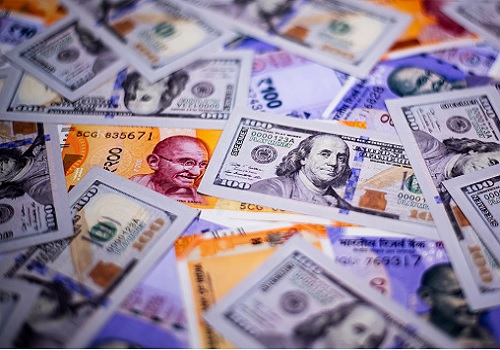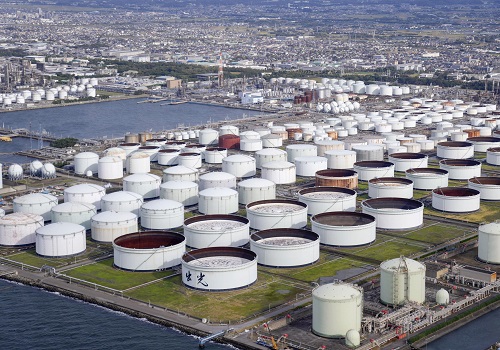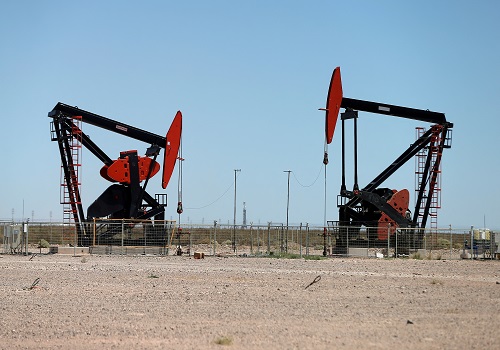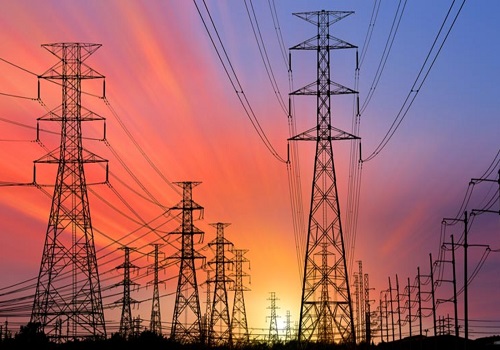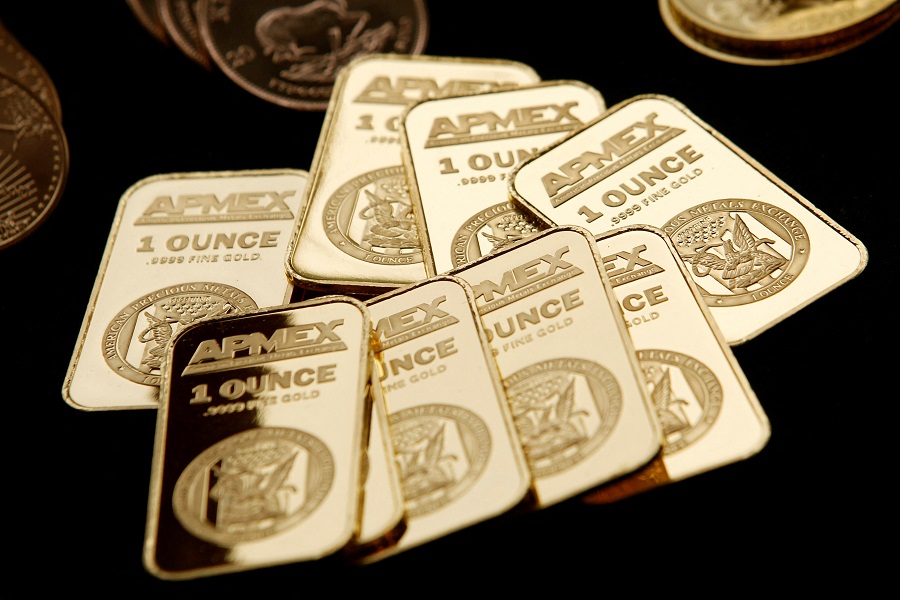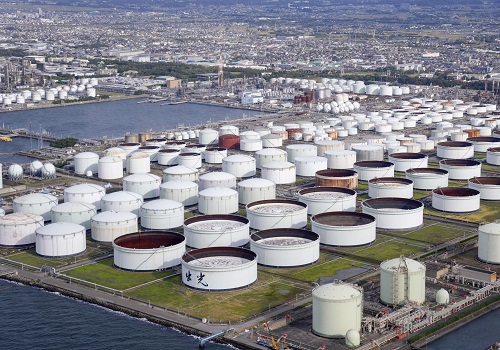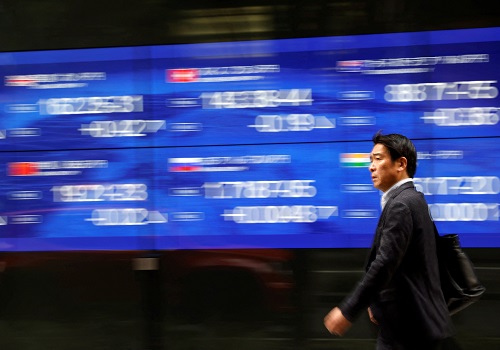U.S. stocks gain, oil dips ahead of NATO summit on Russia-Ukraine war
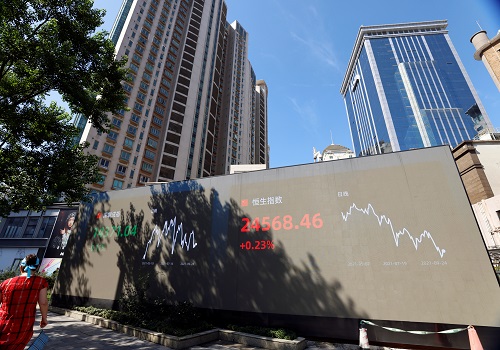
Follow us Now on Telegram ! Get daily 10 - 12 important updates on Business, Finance and Investment. Join our Telegram Channel
BOSTON/LONDON - U.S. stocks rose following choppy trading abroad on Thursday as the Russia-Ukraine war kept oil above $110 a barrel and investors watched a meeting of NATO leaders on Russia's invasion of Ukraine.
Technology companies lifted U.S. stock indexes higher at the open on Thursday after a sharp fall in the previous session, with the tech-heavy Nasdaq Composite up 56.85 points, or 0.41%, to 13,979.45.
The Dow Jones Industrial Average rose 143.9 points, or 0.42%, to 34,502.4, the S&P 500 gained 22.5 points, or 0.50%, to 4,478.74.
The pan-European STOXX Europe 600 index barely budged and government bond yields edged up toward multi-year highs hit earlier in the week as March PMI data came in reassuringly robust.
MSCI's main world stocks index, which no longer includes Russian companies, was flat on the day, but has regained 8% over the last week. It is still more than 7% below its January levels, and investors' mood remains fragile.
Focus was otherwise on a special NATO summit taking place in Brussels, which U.S. President Joe Biden will attend, to discuss further responses to Russia's invasion of Ukraine, now entering its second month.
Rabobank's head of macro strategy, Elwin de Groot, said markets would be closely watching what emerges, especially how unified NATO members remain and what Biden can offer European countries to help wean themselves off Russian gas.
"The NATO meeting is certainly important," de Groot said. "At the minimum you would expect the members to come up with preparations for a possible further escalation in the Ukraine war."
As world leaders mulled additional economic pressures on Russia, BlackRock Inc chairman Larry Fink said in a shareholder letter on Thursday that near-global economic and political isolation of Russia by many governments and businesses "has put an end to the globalization we have experienced over the last three decades."
The dollar strengthened, with the Japanese yen sinking to its lowest since 2015, as the conflict and expectations of central bank tightening kept investors cautious.
Versus a basket of currencies, the dollar was up around 0.25%, trading within recent ranges.
"The sharp hawkish repricing of Fed rate hike expectations has mainly benefited the U.S. dollar against low yielding currencies whose own domestic central banks are expected to lag well behind the Fed in tightening policy," MUFG currency analyst Lee Hardman wrote in a note to clients.
HAWKISH
Driving some of the volatility, some top Federal Reserve policymakers on Wednesday signalled they stood ready to take more aggressive action to bring down decades-high inflation, including a possible half-percentage-point rate hike at the next policy meeting in May.[.N]
Minneapolis Federal Reserve Bank President Neel Kashkari said on Thursday he has penciled in seven quarter-point interest rate hikes this year to help rein in high inflation, but warned against going too far.
Dutch European Central Bank Executive Board Member Frank Elderson said he wouldn't rule out the ECB also raising its rates this year.
The anticipation of additional central bank interest rate increases helped reignite selling in the bond markets that have been unsettled all year by rising global inflation and signs that central banks will need to ratchet up interest rates.
The yield on benchmark 10-year Treasury notes was up 4.5 basis points to 2.366% and German bunds crept over 0.52%, while oil and gas markets also remained jumpy amid all the geopolitical uncertainty.
Russian President Vladimir Putin said on Wednesday that Moscow would seek payment in roubles for gas sold to "unfriendly" countries, jolting energy markets, although Italy's President Mario Draghi said it planned to keep paying in euros.
After rising more than 5% Wednesday, U.S. crude fell 0.83% to $113.98 per barrel and Brent was at $120.78, down 0.67% on the day.
Goldman Sachs market analysts estimated that it would take a sustained oil price increase to $200 per barrel to produce an income shock similar in magnitude to those that precipitated U.S. recessions in the 1970s.
"While we cannot rule out such an outcome, $200 is considerably above our commodity team’s upside-risk estimate of $165," they wrote in a note late Wednesday.
Spot gold added 0.4% to $1,951.41 an ounce.









